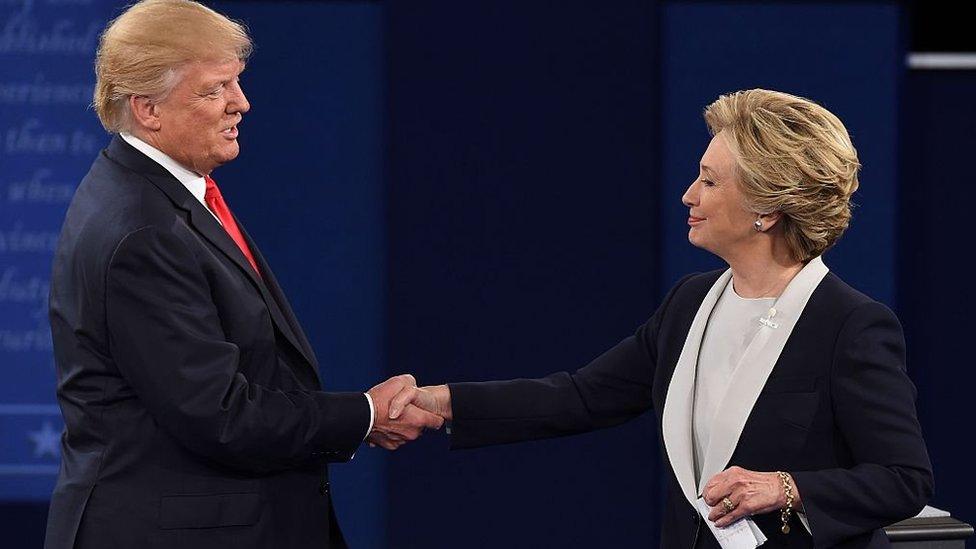Tech Tent - ransomware, election bots and AI
- Published
On this week's Tech Tent - your weekly status update on the technology business - we have three stories reflecting our current anxieties about the nature of our digital world.
We'll discuss the biggest cybersecurity threat of the moment, the use of bots in the fight to get the upper hand on social media during the US elections and the ongoing debate about the risks of artificial intelligence.
Ransomware

This week, producer Jat Gill and I attended a demo by security firm Sophos which left us both rather scared. James Lyne from the firm played a bad guy launching an attack on a company, while two colleagues played the increasingly confused system administrators trying to work out what was going on as chaos engulfed the network.
We then heard that the principle weapon in the attackers' armoury was now ransomware. This is malicious software that first takes over your network, then encrypts all your files before demanding a ransom - usually in Bitcoin - to unlock them.
This is now proving a major threat to organisations from hospitals to police forces - we don't know the exact scale of the problem because it seems many quietly pay up without telling anybody.
What's really scary is that some of this ransomware is now out there on the internet but without any way of even paying the criminals behind it, who have long since moved on. That means there is no way of unlocking your encrypted files.
So what's to be done? James Lyne tells us that companies which regularly update their security systems should be safe - but the most important advice is to make regular back-ups of your files, and make sure they are insulated from the rest of your network.
Bots for Trump

The second debate was marked by the personal attacks each candidate made about the other
Computational propaganda is the term Professor Philip Howard of Oxford University uses to describe his research project. He is on this week's show talking about his study of Twitter activity during the Presidential debates.
His research - which has not yet been peer reviewed - appears to show that many more automated accounts are being used to tweet in support of Donald Trump than the bots backing Hillary Clinton.
During British election campaigns I get bombarded with reports from sentiment analysis firms, claiming they can mine Twitter to understand who is winning over voters. Those claims always seemed dubious - even more so, now that it appears that expertise in running bots is becoming the prime weapon in social media campaigning.
The ethics of AI

Stephen Hawking has warned about the dangers of artificial intelligence.
At a period when new advances in Artificial Intelligence seem to be reported every day, the ethical issues surrounding its impact on our lives are rising up the agenda.
This week saw the opening of an AI think tank, the Centre for the Future of Intelligence, in Cambridge with Prof Stephen Hawking renewing his warnings that the technology could bring extraordinary benefits to mankind - but could also spell the end for us.
Then on Thursday night I took part in a Cambridge Union debate opposing the motion: "This House fears the rise of artificial intelligence". I'm afraid to report that our side lost - and fear won - though all the speakers agreed we needed a more nuanced view of AI.
And that's what we get on Friday's programme from one of the pioneers of artificial intelligence research in the UK, Prof Margaret Boden. She tells us to stop worrying about some apocalypse that is a very remote danger but start thinking about the ethics of using robots to care for the elderly.
Listen to Tech Tent on Fridays at 15:00 GMT (16:00 BST) on BBC World Service or catch the podcast here..
- Published20 October 2016
- Published19 October 2016

- Published7 June 2016
